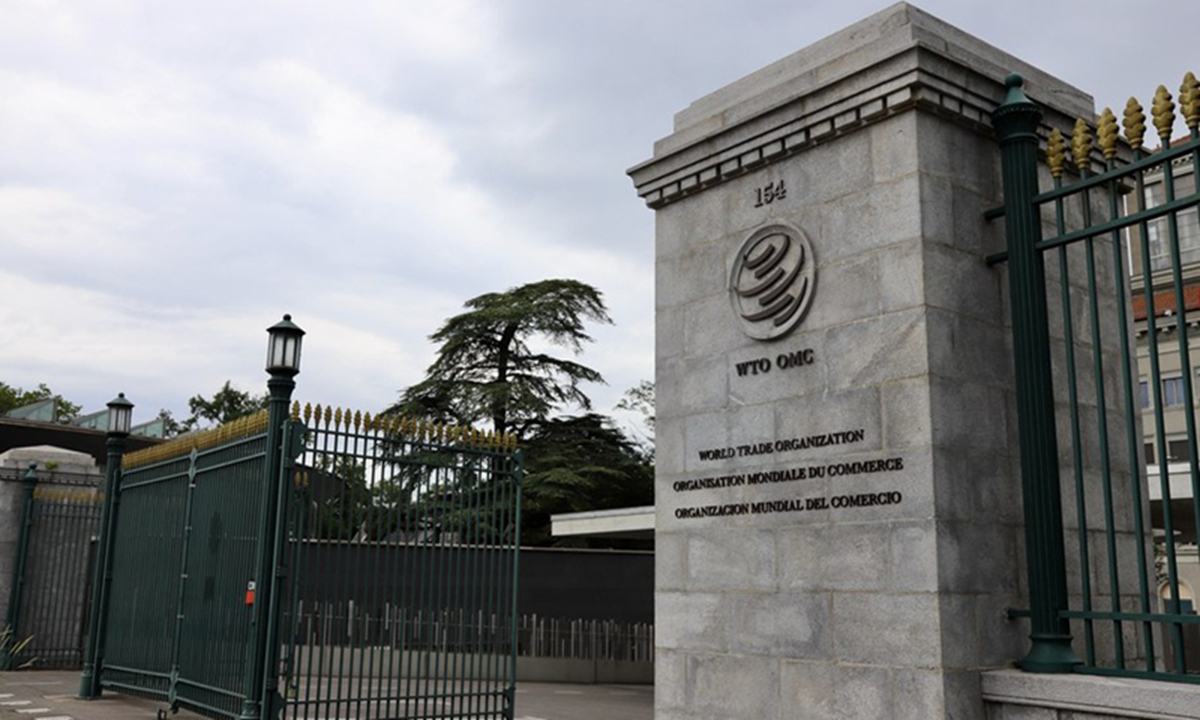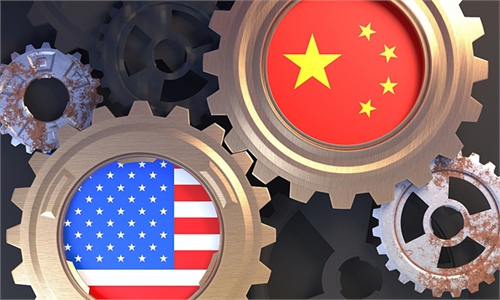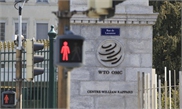
Photo: Xinhua
Food security and vaccine equity will be on the top of the agenda for trade ministers from World Trade Organization (WTO) members as they gather in Geneva for the 12th Ministerial Conference (MC12), which begins Sunday. Whether WTO members can reach consensus at the meeting could signal whether the spirit of rational multilateral cooperation in the international economic and trade arena can return, even though US-based trade hegemony has no shortage of supporters in the West.For the first time in more than four years, trade ministers will gather again, after the ministerial conference was postponed twice due the COVID-19 pandemic. "This is not an ordinary ministerial conference," WTO Director General Ngozi Okonjo-Iweala said in May. She called on WTO members to push as hard as they can to bridge differences, but acknowledged that the complex geopolitical situation means "we may not be able to achieve everything we want."
WTO's multilateral trading system is facing one of its toughest moments. William Reinsch, a former US trade official, was quoted by the Voice of America (VOA) as saying before the MC12 that "the WTO is now in danger of becoming irrelevant." The "decline" of the WTO has coincided with the rise of anti-globalization sentiment in the West. A key challenge to the WTO's multilateral trading system is Washington's attempts to divide global trade with geopolitics.
Protesters in the West claim that globalization does not benefit everyone, especially the developed countries due to production transfers as Western companies seek a competitive edge in finding low-cost labor in the emerging market economies.
As global supply chains are reconfigured, the administration of US President Joe Biden tries to persuade American and Western companies to abandon the Chinese market, and strengthen trade links between the US and its allies. The launch of the Indo-Pacific Economic Framework (IPEF) is such an example that the US wants to form its own circle of friends despite the risk of inducing a fragmentation of the global supply chain.
What's worse, the US and its allies have ramped up suppression of other countries, by imposing reckless economic sanctions on others to prolong the US hegemony. For instance, draconian economic sanctions imposed on Russia have put enormous pressure on global trade and results in a range of global issues such as the food-energy crisis and the restructuring of these trade systems according to so-called ideological criteria.
Trade ministers from members of the WTO hope they can achieve an outcome on agriculture at MC12 that will contribute to the ending of hunger and improved nutrition of the needy in the world, which calls for closer cooperation and partnership between the world's major economies, including the US, China and European countries.
Many developing countries want to avoid the so-called "bipolar logic" that demands them to choose sides between the US and China. Global economic picture has become more complex and uneven, which will increase the difficulty of reaching a consensus at MC12. But, the gathering of trade ministers of WTO members at the upcoming MC12 has sent a strong signal that WTO's multilateral trading system remains resilient and vital.
Shu Jueting, spokesperson for China's Ministry of Commerce, said on Thursday that China will work to promote WTO reform in the right direction, and support the inclusive development of the multilateral trading system as well as the legitimate rights and interests of all its developing members. Shu said China will firmly uphold true multilateralism, and promote MC12 to achieve positive and pragmatic results.
The US has long accused China of challenging the premise of WTO rules, but the fact is China has always been a strong proponent of WTO and the free, multilateral trade system that WTO represents. The global trade bloc needs to restore its dispute appellant settlement regime as soon as possible and play a greater role in resisting unilateralism and protectionism. If the US tries to see the WTO as a tool, it will inevitably make itself the antithesis of the global trade order as well.



